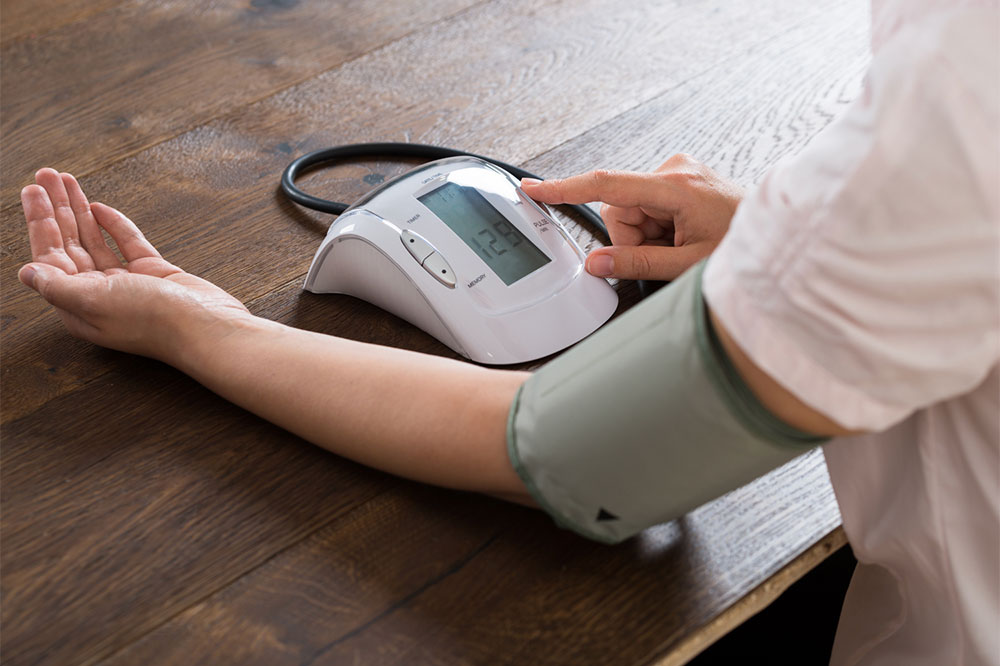Comprehensive Guide to Hypertension: Recognizing Symptoms, Understanding Causes, and Implementing Prevention Strategies
Hypertension, or high blood pressure, quietly affects many, often without symptoms, but it can lead to severe health issues like heart disease, stroke, and organ damage. Regular check-ups, lifestyle changes, and early treatment are vital for prevention and management. This comprehensive guide explores symptoms, causes, risks, and effective strategies to control blood pressure, helping individuals maintain healthier lives and avoid critical health complications.

Comprehensive Guide to Hypertension: Recognizing Symptoms, Understanding Causes, and Implementing Prevention Strategies
Hypertension, frequently referred to as high blood pressure, is one of the most common and potentially dangerous health conditions worldwide. It occurs when the force of blood against the walls of your arteries remains persistently elevated, which over time can lead to severe health complications. Despite its prevalence, many individuals remain unaware of their condition because hypertension often presents no noticeable symptoms. This makes early detection through regular medical check-ups essential. Understanding the intricacies of hypertension, including its symptoms, underlying causes, and effective prevention strategies, can empower individuals to take proactive steps toward maintaining healthy blood pressure levels and avoiding life-threatening consequences.
Understanding the Symptoms of Hypertension
One of the most challenging aspects of hypertension is its insidious nature—most individuals do not experience apparent symptoms until blood pressure levels reach dangerously high. Some people might occasionally report mild symptoms like headaches, dizziness, or shortness of breath, but these indicators are often non-specific and easily attributed to other causes. As a result, many live with unmanaged high blood pressure for years without realizing it. When symptoms do manifest more clearly, the condition may have already caused significant damage. Severe hypertension can lead to symptoms such as severe headaches, vision disturbances, chest pain, or even signs of stroke—requiring prompt medical attention. Recognizing these warning signs early and regularly monitoring blood pressure are vital for effective management and prevention of critical health issues.
Why Regular Blood Pressure Monitoring is Critical
Blood pressure readings are the primary way to detect hypertension accurately. Modern medicine makes it simple and painless to check blood pressure, usually involving a cuff and a digital monitor. Routine screenings by healthcare professionals should be part of regular health check-ups, especially for individuals over 40 or those with risk factors like obesity, family history, or certain ethnic backgrounds. Self-monitoring devices are widely available, enabling individuals to keep track of their blood pressure at home and share these readings with their healthcare providers. Regular monitoring helps catch rising blood pressure early, even when symptoms are absent, facilitating timely intervention and better health outcomes.
Factors that Contribute to High Blood Pressure
Hypertension is a multifaceted condition influenced by a range of genetic, lifestyle, and environmental factors. Understanding these risks can aid in targeted prevention efforts:
Age: As individuals age, blood vessels gradually lose elasticity, making high blood pressure more common. Men are most affected until around age 64, after which women tend to have higher prevalence.
Ethnicity: People of African descent face a higher risk of developing hypertension earlier in life and often experience more severe complications like heart disease and kidney failure.
Lifestyle Factors: Unhealthy diet high in salt, excessive alcohol consumption, physical inactivity, and chronic stress significantly increase the risk. Additionally, smoking damages blood vessel walls, raising blood pressure over time.
Genetic Predisposition: Family history of hypertension can predispose individuals to similar issues, emphasizing the need for regular screening if there is a genetic background.
Potential Complications of Uncontrolled Hypertension
When left untreated or poorly managed, high blood pressure can take a toll on your body's vital organs and overall health. The persistent high pressure inside arteries accelerates the deterioration of blood vessel walls, leading to a series of serious complications:
Cardiovascular Disease: Hypertension significantly increases the risk of heart attacks, heart failure, and irregular heart rhythms. Hardened arteries, or atherosclerosis, impede blood flow and can cause blockages or ruptures.
Cerebrovascular Events: Elevated pressure can cause strokes by damaging blood vessels in the brain, leading to ischemic or hemorrhagic strokes.
Aneurysm Formation: Weakened spots in arterial walls may bulge out, forming aneurysms that can rupture suddenly and be fatal.
Organ Damage: Kidneys, eyes, and other organs suffer from reduced blood flow and pressure-related damage. Kidney failure and vision loss are common long-term effects.
Hypertension and Related Metabolic Disorders
Hypertension often coexists with metabolic syndrome—a cluster of conditions including increased waist circumference, abnormal lipid profiles, elevated blood glucose, and insulin resistance. This combination amplifies the risk of developing severe health issues such as type 2 diabetes, stroke, and coronary artery disease. Managing hypertension often involves addressing these metabolic factors through lifestyle adjustments and medication when necessary, providing a comprehensive approach to reducing cardiovascular risk.
Methods for Detecting High Blood Pressure
Accurate diagnosis of hypertension relies on proper blood pressure measurement by healthcare professionals. These measurements are quick, painless, and straightforward. However, self-monitoring devices empower patients to keep track of their blood pressure regularly, especially since many are asymptomatic. Consistent readings over time, combined with professional evaluations, enable effective management strategies tailored to each individual's needs. Early detection is critical in preventing progression to severe hypertension and its associated health risks.
Strategies for Preventing and Managing Hypertension
Preventing high blood pressure involves adopting healthy lifestyle habits and making informed choices. The following strategies are scientifically proven to help maintain optimal blood pressure levels:
Regular Physical Activity: Engaging in at least 150 minutes of moderate-intensity aerobic exercise each week, such as brisk walking, cycling, or swimming, improves cardiovascular health and helps lower blood pressure.
Healthy Eating Habits: Emphasizing a balanced diet rich in fruits, vegetables, whole grains, lean proteins, and low-fat dairy supports heart health. Reducing salt intake is particularly crucial, as excessive sodium consumption is strongly linked to high blood pressure.
Maintaining a Healthy Weight: Achieving and sustaining a healthy weight through diet and exercise reduces the strain on your heart and blood vessels, significantly lowering hypertension risk.
Stress Management: Incorporating relaxation techniques such as meditation, yoga, or deep breathing exercises can help control stress levels, which may otherwise elevate blood pressure temporarily or chronically.
Avoiding Tobacco and Excessive Alcohol: Smoking damages the arteries, while excessive alcohol intake raises blood pressure. Limiting or eliminating these habits is key to hypertension prevention.
In some cases, lifestyle modifications alone may not be sufficient. Healthcare providers might prescribe antihypertensive medications or suggest alternative therapies based on individual health assessments. Early diagnosis and adherence to treatment regimens significantly reduce the risk of strokes, heart failure, kidney damage, and cognitive decline, contributing to a longer, healthier life. Remaining vigilant about blood pressure health not only improves quality of life but also diminishes healthcare costs associated with advanced cardiovascular conditions.





